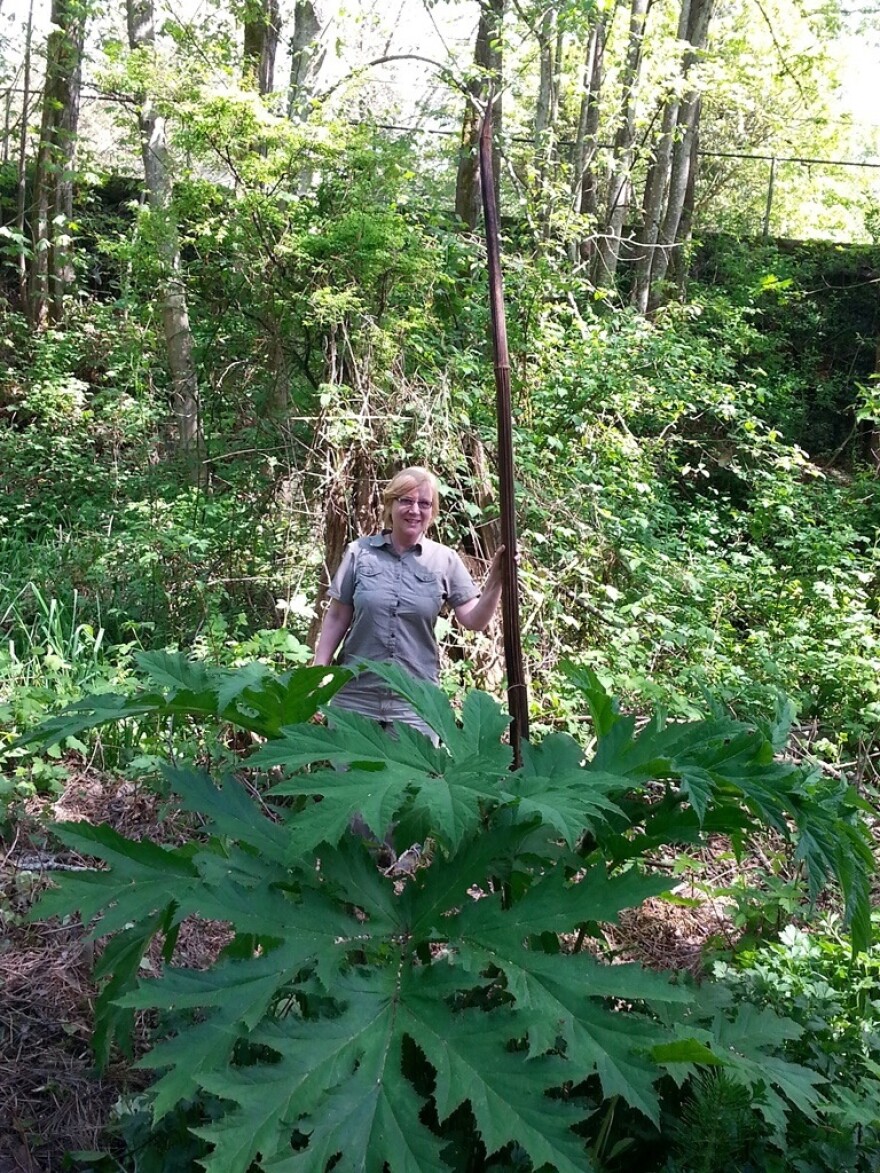If you find giant hogweed growing in your garden, don't try to remove it without wearing protective clothing and safety glasses. Otherwise, you could end up suffering for a long time, says Sasha Shaw, an educator with the King County Noxious Weed Control Program.
Shaw has seen pictures of people hurt by giant hogweed. She says it's the plant's sap that "makes your skin hypersensitive to sunlight and then the sunlight causes burns and blisters. It can cause reddish to purplish scarring for up to several years.”
Karen Peterson, a noxious weed specialist who drives around King County looking for invasive plants, says the problem use to be a lot worse.
"We use to have close to a thousand sites. Now we are down to about 300," she said.
The giant hogweed is often mistaken for an artichoke plant, gunnera and even rhubarb. In its glory, giant hogweed can grow up to 20 feet.
As with most invasive plants, giant hogweed arrived to the United States under more welcoming circumstances. It was popular with gardeners 30 years ago for its striking appearance. The plant comes from Russia and Asia. In fact, Shaw says Joseph Stalin ramped up giant hogweed production when he discovered parts of it can be eaten.
“He thought this will be great food for our cows. Plus it causes these burns and blisters right, so it’s bad for the farmers. And so it was a huge disaster and the plant just invaded and spread even further because of all of that," said Shaw.
Giant hogweed is one of 38 Class A noxious weeds in King County. This means it is in small enough numbers that there is a good chance it can be wiped out for good. If you think you have this growing in your garden, put it in sturdy trash bags. Skip the yard waste and take it to the garbage.
If you would like some help figuring out if you have noxious weeds on your property, you can call the Washington State Noxious Weed Control Board at 360-725-5764, and get connected with a weed specialist in your area.





